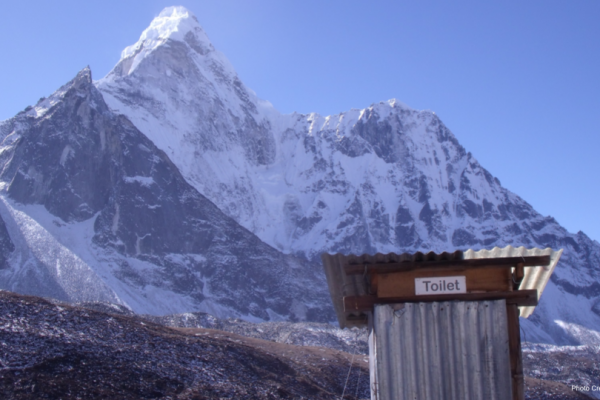
I frequently get asked for advice about the oral contraceptive pills (OCP) and high altitude. Long term users of various types ask me whether it is safe to continue using their oral contraceptive or whether they should be doing anything differently prior to their high altitude adventure.
Firstly, it is important to note that there is still very limited data in this area because although the numbers of people on OCP going to high altitude is increasing, it is very challenging to do research studies. However, from the evidence we do have, this is the general expert consensus:
1) Being on an OCP has shown no advantage or disadvantage for acclimatisation to high altitude or physical performance at high altitude.
2) The effectiveness of OCP is not altered by short stays at high altitude. The caveat to this is that as with any oral medication, for it to work it must be taken adequately and absorbed properly. Absorption decreases if you have diarrhoea or vomiting which are common on many high altitude trips due to a variety of conditions such as altitude illness, travellers diarrhoea, food poisoning etc. Hand and food hygiene is critical for your overall health and enjoyment, but also to ensure your OCP is working! It is worth noting that the vast majority of antibiotic medication do not interact or affect oral contraceptive efficacy but it is alway worth checking if you are going to take an antibiotic.
3) Breakthrough bleeding can occur at high altitude due to hormones being affected by the combination of altitude, sleep disturbance/time zone alterations, change in diet, gastrointestinal illness, missed doses, physical and emotional stress etc. I advise to always be prepared for this and carry to some supplies for unexpected breakthrough bleeding.
4) For those taking the combined oral contraceptive pill (COCP) which contains oestrogen and progesterone, there is a theoretical increased risk of blood clots at high altitude (deep vein thrombosis, classically in the legs and pulmonary embolus in the lungs), however any clear evidence for this is lacking. The COCP is known to be a risk factor for blood clots and high altitude itself is a risk factor for clotting, likely due to a combination of factors such as dehydration, diarrhoea or vomiting illness, losing more liquid through breathing more than at low altitude, wearing tight fitting clothes and boots. So generally, for someone on the COCP then it is even more important to take the standard precautions to help prevent blood clots e.g. staying well hydrated (drinking enough to pass regular, clear/pale urine), getting up and walking around regularly on long haul flights/journeys, even slower ascents to high altitude and ensuring a healthy weight/BMI.
It is also advisable that someone on the COCP has a consultation about the risks of this medication with whoever provides their prescription in the 6 months before the trip because their general risk factors may have changed by then and they may decide or need to swap contraception method. If swapping, it’s best to do it well in advance of an expedition so you have time to try out and get used to a new method. If you are considered low risk for clots on the COCP normally, then as long as you follow the above advice, there is currently no evidence to suggest significant extra risk from being on the COCP at high altitude.

Overall the consensus is that oral contraceptive use is considered safe at high altitude and can even help prevent some of the symptoms of menstruation which may have otherwise been confused for altitude illness.
Regardless of the oral contraception or medical period control method used, I always advise taking some sanitary pads/tampons/cup/period pants/whatever you normally use with you when you go away just in case you have an unexpected breakthrough bleed or in case you’re unwell and unable to take your tablets. I also advise packing wet wipes, some little plastic bags to wrap used sanitary items and some alcohol hand gel in case you need to change on the trail and you’re not near a toilet or bin.
